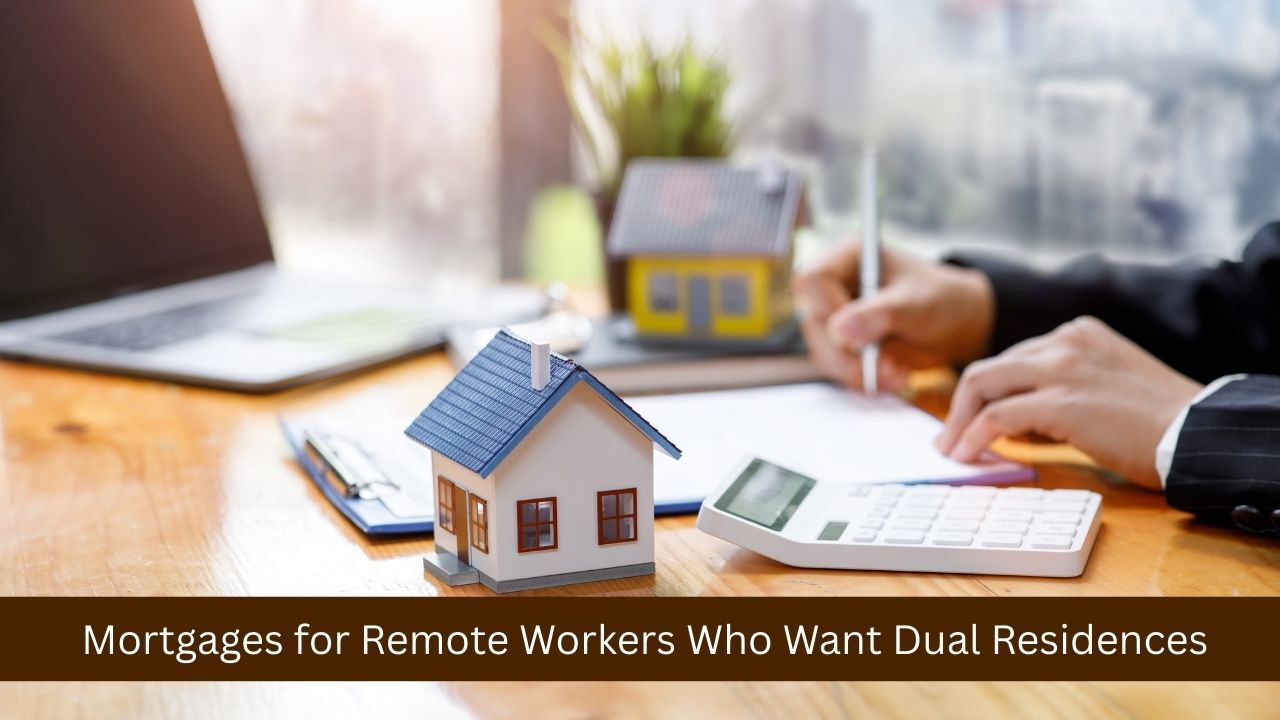Understanding the Jumbo Mortgage and Why Refinancing is Different
 The contemporary trend towards expansive dimensions is palpable in various aspects of modern life. Oversized soft drinks, large fast-food meals, and expansive smartphones have become ubiquitous. However, one unlikely sector experiencing a similar trend is the realm of mortgages.
The contemporary trend towards expansive dimensions is palpable in various aspects of modern life. Oversized soft drinks, large fast-food meals, and expansive smartphones have become ubiquitous. However, one unlikely sector experiencing a similar trend is the realm of mortgages.
Delving into the specifics, what exactly constitutes a jumbo mortgage? How does it differ from its conventional counterpart, and what implications does it hold for potential refinancing? Here’s a comprehensive overview.
Jumbo Mortgages
As the name suggests, the primary distinguishing factor of jumbo mortgages lies in the loan limit. Fannie Mae and Freddie Mac administer mortgage limits nationwide, contingent upon the cost of living in individual states. In scenarios involving high-value real estate, such as luxury properties and commercial holdings, standard mortgages may prove insufficient, thus necessitating the flexibility afforded by jumbo mortgages.
Jumbo mortgages are particularly prevalent in regions characterized by elevated living costs, where real estate values routinely exceed the standard loan limits applicable to high-cost areas.
Qualifying for a Jumbo Mortgage
Given the higher financial stakes, eligibility requirements for jumbo mortgages are markedly more stringent than those for traditional mortgages. Notably, jumbo mortgages do not fall under private insurance coverage, resulting in a substantially larger down payment compared to standard mortgages. Prospective applicants must convincingly demonstrate to lenders their financial capacity to meet the obligations associated with a jumbo mortgage.
Additionally, a higher credit score is imperative for those seeking a jumbo mortgage. While a credit score of 660 or higher suffices for conventional mortgages, a minimum score of 700 is typically required for consideration by most lenders when applying for a jumbo mortgage.
Jumbo mortgage lenders may mandate that borrowers set aside a minimum of six months’ worth of payments in a dedicated bank account at the time of closing, a requirement that typically stands at two months for standard mortgages. Applicants must also prove to their lenders that their debt-to-income ratio is below 45 percent to qualify for a jumbo mortgage.
Refinancing Complexities
Refinancing a jumbo mortgage introduces heightened complexities compared to standard mortgages. Considerable home equity is a prerequisite for refinancing, and individuals looking to include Home Equity Line of Credit (HELOC) debt in the refinancing plan must adhere to stringent conditions, including the absence of any deductions against home equity in the preceding 12 months.
Specific lenders may impose additional requisites for refinancing jumbo mortgages. For example, homeowners with less than a year of ownership may be directed toward a Freddie Mac or Fannie Mae loan. Regardless of the fair market value at the time of mortgage filing, properties owned for less than a year are typically assessed at their original purchase price.
While jumbo mortgages provide an avenue for acquiring luxury residences or commercial properties, securing one demands meticulous adherence to a stringent set of prerequisites. Prospective applicants are advised to seek guidance from professional advisors to navigate the intricate qualification process successfully.
For those contemplating a jumbo mortgage, engaging with a seasoned mortgage professional is crucial to gaining insights into refinancing alternatives and understanding the qualification criteria. Reach out to your trusted mortgage professional to explore refinancing options and ascertain your eligibility for a jumbo mortgage.

 Home is where the heart is, and it’s also where you should feel the safest. Ensuring the security of your home has never been more attainable. Home security systems have evolved from simple locks and alarms to sophisticated, interconnected networks that provide round-the-clock protection. We will explore the latest innovations and timeless strategies to keep your home safe and secure.
Home is where the heart is, and it’s also where you should feel the safest. Ensuring the security of your home has never been more attainable. Home security systems have evolved from simple locks and alarms to sophisticated, interconnected networks that provide round-the-clock protection. We will explore the latest innovations and timeless strategies to keep your home safe and secure. Remote work has transformed the way people live and plan their financial futures. Instead of being tied to one city, many professionals now choose to split their time between two homes. Some want the excitement of an urban condo while keeping a peaceful retreat in the mountains or at the beach. Others need to balance family life in one state with work opportunities in another. As this trend grows, understanding mortgage options for dual residences has become essential.
Remote work has transformed the way people live and plan their financial futures. Instead of being tied to one city, many professionals now choose to split their time between two homes. Some want the excitement of an urban condo while keeping a peaceful retreat in the mountains or at the beach. Others need to balance family life in one state with work opportunities in another. As this trend grows, understanding mortgage options for dual residences has become essential.